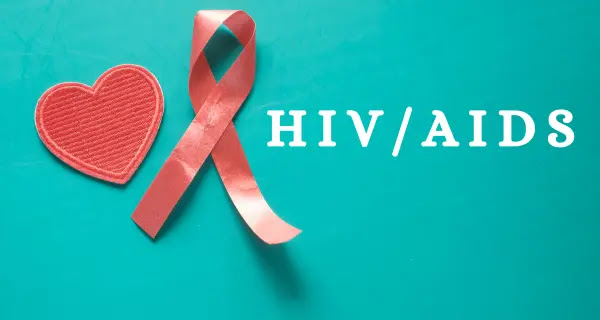Anemia
Overview
Anemia is a decrease in the number of healthy red blood cells or a decrease in the level of hemoglobin, which is the main component of red blood cells, responsible for transporting oxygen throughout the body. There are many types of anemia depending on the causative factor.
Paleness of the face, general fatigue, headache, and chest pain are the most important symptoms and signs in anemia patients. Anemia may also be permanent or temporary; its severity ranges from mild to severe.
Types of Anemia
There are many types of anemia and they differ among themselves in terms of causes and treatment, and the symptoms of anemia may also vary depending on the type that affected the patient.
Types of anemia may include:
Iron deficiency anemia
This type of anemia occurs as a result of the inability of the bone marrow to form red blood cells as a result of iron deficiency in the body, iron is an element that enters into the synthesis of hemoglobin, which is the main protein that makes up red blood cells, and it is worth noting that the symptoms of anemia in children and pregnant women are often due to iron deficiency anemia.
Pernicious anemia
It is also called Malignant Anemia, when the patient suffers from a lack of vitamin B12, as this vitamin is important for the process of manufacturing red blood cells. This type of anemia affects women and the elderly in a greater proportion.
Hemolytic anemia
The lifespan of erythrocytes is shortened, noting that their normal lifespan is 120 days. When red blood cells die more quickly, the marrow begins to double its production of red blood cells, and because of this, the bone marrow loses its ability to produce increased production of these cells, which causes hemolysis and the occurrence of symptoms of anemia.
Sickle cell anemia
Deformation of erythrocytes occurs in sickle cell anemia, they become in the form of a crescent or sickle, the level of iron in the blood rises, and the liver's stock of it increases as a result of erythrocyte lysis.
Mediterranean Anemia
Commonly known as thalassemia, it is a hereditary disease, and usually, the sufferer of this disease needs blood transfusions constantly, and this, in turn, leads to a high percentage of iron in the patient's blood, as it leads to its deposition in the tissues of the body, endocrine glands, liver, pancreas, which causes their damage.
Megaloblastic anemia
The presence of a disorder in the genetic material (DNA) leads to the occurrence of a type of anemia called Megaloblastic Anemia.
Causes of Anemia
The factors that cause anemia vary according to its type, as follows:
1. Iron deficiency anemia
Iron deficiency anemia is called iron deficiency anemia, and it is the most common type of anemia, as a decrease in iron stores in the body leads to a decrease in the bone marrow to manufacture hemoglobin necessary for the formation of red blood cells, and iron deficiency may occur for several reasons, the most important of which are:
- Loss of large amounts of blood due to heavy bleeding during menstruation.
- The presence of ulcers, cancer cells, or tumors in a particular part of the digestive system.
- Natural deficiency occurs during pregnancy and breastfeeding.
- Avoid eating iron-rich foods such as eggs, liver, red meat, and spinach, especially in young children and adolescents.
- Gastrointestinal disorders such as Crohn's disease.
2. Vitamin deficiency anemia
A deficiency of vitamin B12 or a lack of folic acid leads to a decrease in the ability of the bone marrow in the body to produce healthy red blood cells, causing several types of anemia for the following reasons:
- Basal cell megaloblastic anemia occurs as a result of a deficiency in vitamin B12 or folic acid, or both.
- Pernicious anemia is caused by decreased absorption of vitamin B12.
- Food deficiency anemia, which occurs as a result of not eating foods rich in vitamin B12 such as red meat, or not eating vegetables causes a deficiency of folic acid.
3. Anemia caused by stomach surgery
An operation to remove part of the stomach or intestine affects the absorption of nutrients needed to make red blood cells, causing anemia.
4. Anemia associated with chronic diseases
Having some diseases such as cancer, AIDS, rheumatoid arthritis, kidney failure, or any other chronic diseases may lead to a decrease in the manufacture of red blood cells.
5. Anemia caused by certain infections or medications
Some autoimmune diseases may cause a rare and serious type of anemia.
6. Anemia caused by bone marrow problems
The bone marrow is the organ responsible for the manufacture of red blood cells, so any disorders affecting the bone marrow such as leukemia or myelodysplasia may lead to anemia.
7. Anemia caused by the breakdown of red blood cells
Anemia is caused by certain blood disorders that cause red blood cells to break down.
8. Anemia caused by genetic factors
Genetic factors may cause the production of an abnormal type of hemoglobin, and thus the production of red blood cells abnormally, in what is known as sickle cell anemia.
Diagnosis of Anemia
In diagnosing anemia, the doctor depends on several tests, including:
Clinical Examination
which includes checking the heartbeat, breathing, and checking the size of the liver and gallbladder through ultrasound imaging.
Blood CellS Count Test
to determine the red blood cell count and hemoglobin.
Laboratory Tests
to determine the size and shape of red blood cells so that the doctor can determine the type of anemia.
The doctor may recommend additional tests in case of ulcers or tumors that may cause anemia.
Complications of Anemia
Failure to treat or delay anemia causes some complications, including:
- Exhaustion and extreme fatigue, where severe anemia causes the patient to lose the energy needed to complete his normal activities.
- Heart disorders where anemia may cause a rapid or irregular heartbeat due to a lack of oxygen carried by red blood cells.
- Some types of hereditary anemias can cause serious complications that can lead to death.
Treatment of Anemia
Anemia treatment aims to increase the number of red blood cells, thus providing the necessary oxygen to the body's various tissues. The treatment of anemia also depends on its type, and is as follows:
1. Iron-deficiency anemia treatment
Iron-deficiency anemia is treated by taking iron supplements in either pills, liquid, or intravenous injection.
Change your diet by eating iron-rich foods such as spinach, red meat, egg yolk, and liver.
2. Vitamin deficiency anemia treatment
It depends on taking vitamins such as vitamin B12 and folic acid to compensate for the deficiency.
3. Treatment of anemia related to chronic diseases
Anemia related to chronic diseases is chronic, and it depends on treating the cause first.
4. Aplastic anemia treatment
- Frequent blood transfusions.
- New bone marrow transplant.
5. Sickle cell anemia treatment
- Take pain relievers.
- Replacement with intravenous fluids.
- Take a folic acid supplement.
- blood transfusions.
- Taking immunosuppressive drugs.
- Take anti-inflammatory medications.
- Apheresis, or blood purification.
7. Thalassemia treatment
- Treatment is based on taking a folic acid supplement.
- Frequent blood transfusions.
- Connection of the spleen.
- New bone marrow transplant
8. Treatment of anemia caused by malnutrition
- Green vegetables such as spinach.
- brown rice;
- nuts.
- fish.
- eggs.
- Dried fruits, such as dried apricots and dried figs.
Prevention of Anemia
It is possible to avoid anemia by following several tips, the most important of which are:
Adopt a diet rich in vitamins and iron, such as:
Iron-rich foods
(found in meat, green leafy vegetables, and grains)
Foods rich in folic acid
(found in fruits and green leafy vegetables)
Foods rich in vitamin B12
(found in meat, dairy, and soy products)
Foods rich in vitamin C
(found in citrus fruits and watermelon and helps absorb iron)
It is recommended to consult a doctor if there is a family history of anemia.

2.webp)




